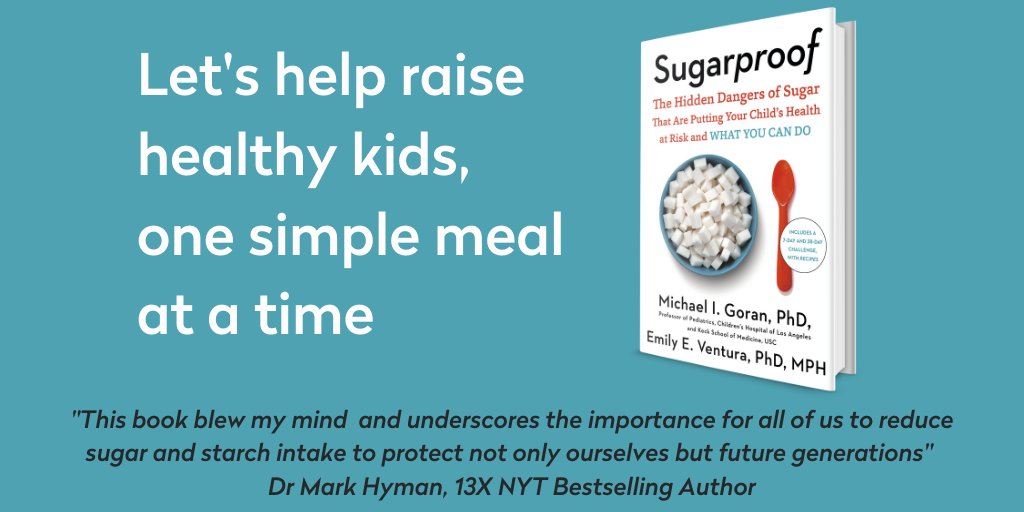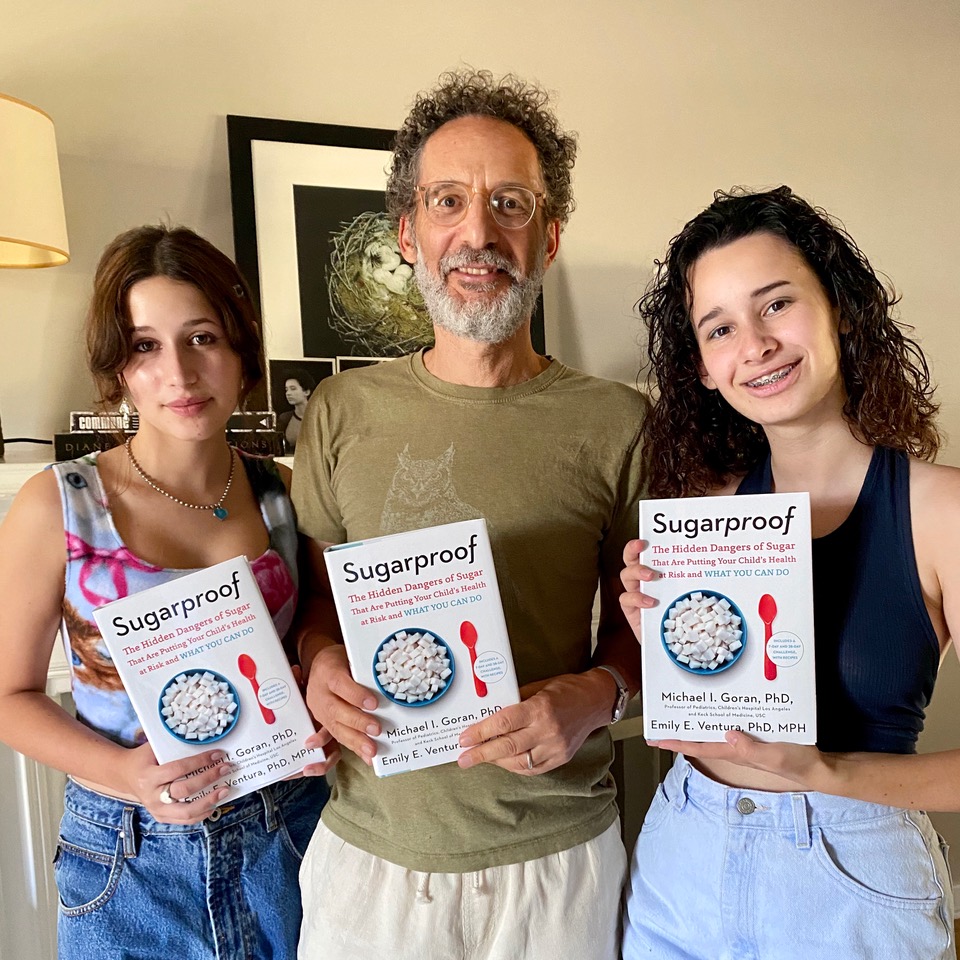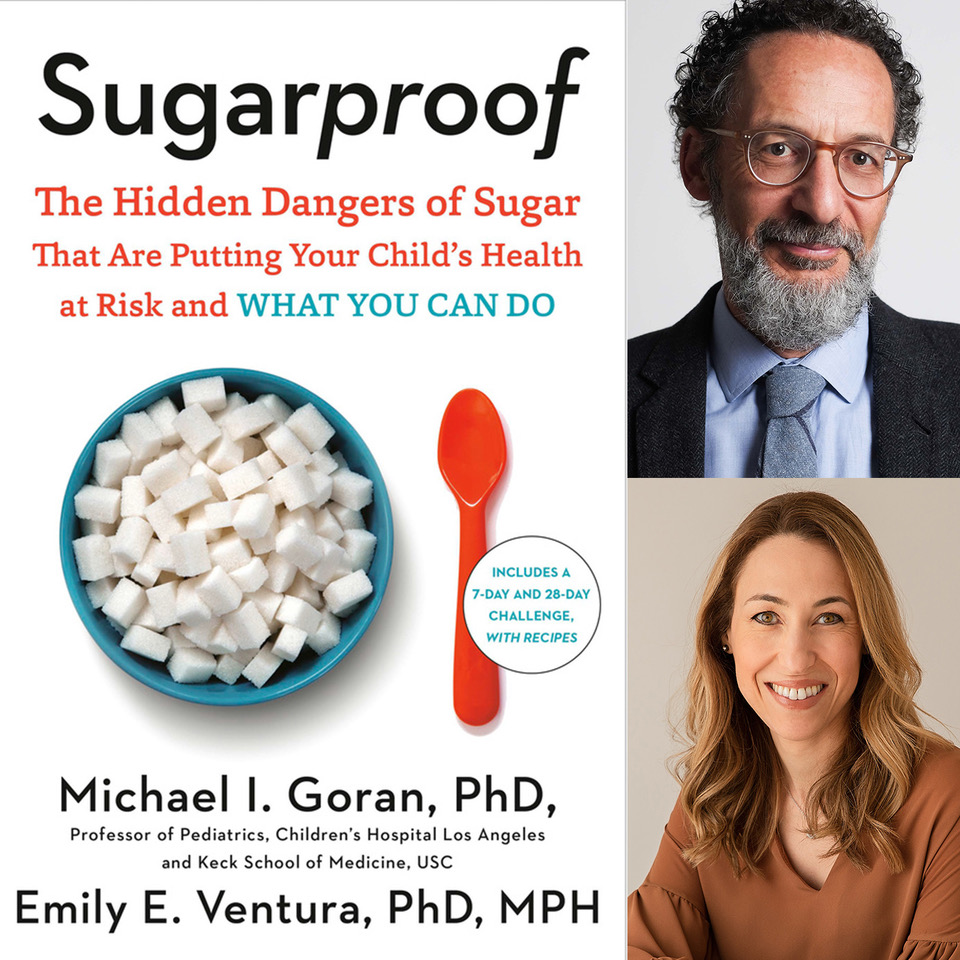 Sugarproof Guides Readers Through the Modern-Day “Sugar Storm,” Providing Realistic Family-Based Solutions
Sugarproof Guides Readers Through the Modern-Day “Sugar Storm,” Providing Realistic Family-Based Solutions
For the recently-released book, SUGARPROOF: The Hidden Dangers of Sugar That Are Putting Your Child’s Health at Risk and What You Can Do (Avery/Penguin Random House), Dr. Michael Goran, Ph.D., professor of pediatrics at the Children’s Hospital of Los Angeles, co-director of the USC Diabetes and Obesity Research Institute and expert in childhood nutrition, teams up with co-author Dr. Emily Ventura, an expert in nutrition education and recipe development. Sugarproof busts myths about the various types of sugars and sweeteners, helps families identify sneaky sources of sugar in their diets, and suggests realistic, family-based solutions to reduce sugar consumption and protect kids.
“Sugarproof” isn’t about quitting sugar entirely, it’s about becoming a smart consumer, identifying and replacing hidden sugars while reducing reliance on sweet foods & drinks as daily staples by transitioning from processed foods (70% of which contain added sugars) to a more whole foods-based diet. Sugarproof encourages families to take on a life-changing 7-Day No Added Sugar Challenge or a 28 Day gradual sugar reduction. Learning how to sugar-proof your life is an empowering journey for the whole family designed to bring sugar consumption to a reasonable level.
In a groundbreaking study, Dr. Michael Goran and his team conducted a detailed analysis of the sugary products that kids love and how they impact everyday life. What they found was that these yogurts, cereals, sodas, and juices often had more sugar than advertised and contained different types of sugar than were being disclosed. The overabundance of sugar, and different types of sugar, can have a direct adverse effect on kids’ weight, chronic disease risk, behavior, and how well they do in school.
In Sugarproof, Goran and Ventura explain how babies are born with a built-in preference for sweet flavors, which is supposed to be protective so that babies like breastmilk, seek out calories and avoid contaminated foods. However, this protective mechanism backfires in today’s high sugar environment, making their developing bodies particularly susceptible to the adverse effects of too much sugar. Food companies target this innate preference for sweetness through advances in food technology, delivering new types of artificial sugars and processed sweeteners like fruit juice concentrates, and then using aggressive marketing campaigns that target children by using their favorite sports heroes and celebrities.
In Sugarproof, we also learn that children don’t need to be overweight to have a sugar problem. In fact, even if well-meaning parents purchase organic options, their children could still have dangerously high levels of blood lipids or body fat wrapped around internal organs. Sugar could be causing problems in school, disrupting sleep, concentration, mood and/or contributing to inflammatory conditions such as asthma and acne. A high sugar intake has also been associated with longer term cognitive decline, including Dementia and Alzheimer’s disease as well as contributing to increased lifelong risk of cancer.
“Most of us know that sugar can wreak havoc on adult bodies, but few realize how uniquely harmful it is to the growing livers, hearts, and brains of children.” says Dr. Michael Goran. “Today’s children are not just consuming more sugar than ever, but they are consuming different types of sugars that are particularly harmful to them–and their parents may not even be aware. Our goal with Sugarproof is to help educate, motivate and empower parents and children to make informed decisions.”
Readers will learn how to identify if their child is eating too much sugar, the many disguises of sugar which can go by over 200 different names and how to become a smarter consumer by understanding labels. They will also learn tips to prevent the ill effects of added sugars, and gain ways to address and reverse those effects.
Could even a week with no added sugar change a family’s health for the better? Yes, and Sugarproof shows you how. The 7-Day No Added Sugar Challenge gives families that start with tools to reboot their diets, identify everyday sources of hidden sugars and find alternative replacements. The book also offers a 28-Day No Added Sugar Challenge for those seeking a more gradual plan. Goran and Ventura offer a reliable and straightforward theory-based approach, encouraging family-based solutions, including easy steps like engaging children in the shopping and cooking process, which will inspire kids to adopt healthier eating habits and the ability to self-regulate sugar. Sugarproof includes 39 food and beverage recipes that are easy, kid-friendly, flavorful, and flexible to account for different food preferences and needs within families.
The release of the book is particularly topical with the U.S. Food and Drug Administration’s recent changes to the Nutrition Facts label, which marks a clear shift with added sugars being listed for the first time. Sugarproof is also timely given the new USDA dietary guidelines which for the first time recommends that infants age 0-2 years of age consume zero added sugars. The COVID-19 pandemic has also added new urgency to the desire to make ourselves and our families as healthy as possible. High sugar and high processed food diets weaken the immune system, making us more susceptible to viral infections and worse outcomes if infected.
You can buy the book here.


